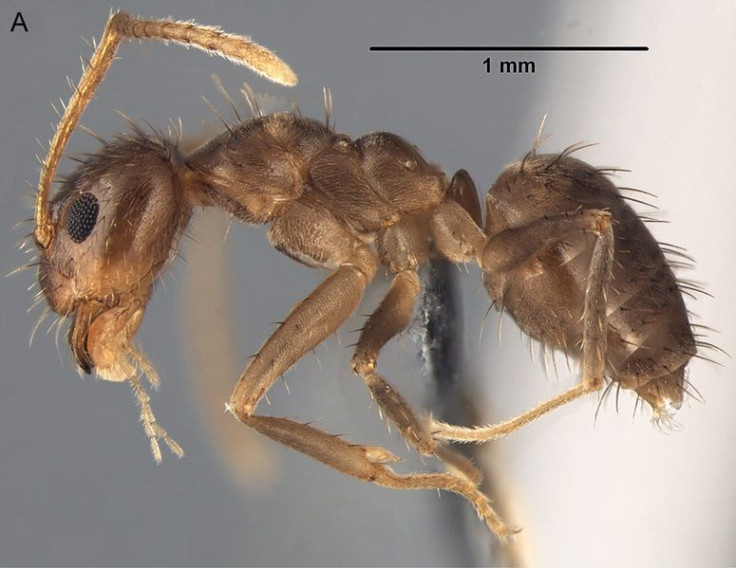Billions Of Rasberry Crazy Ants To Invade Southern Texas, Species Is ‘More Powerful’ Than Fire Ants

Houston is bracing for an incursion by billions of hairy, six-legged intruders. The Rasberry crazy ant, egged on by warmer weather, is expected to emerge from its winter hibernation and overrun the southern Texas city, and 20 other counties surrounding it, within the next few weeks.
The Rasberry crazy ant, named for the exterminator Tom Rasberry who discovered the ants in 2002, are originally from South America but are thought to have arrived in the U.S. aboard cargo ships in the 1930s. CBS Houston reports that the ants are known for their erratic behavior and their penchant for getting into and ruining electrical equipment.
They’re also more destructive and harder to manage than their cousins, the fire ants. The crazy ant has been known to fight and kill fire ants, even outpacing them when it comes to collecting food.
"These ants are so much more powerful than fire ants, when these crazy ants move in they take over," Rasberry told KPRC. “They’re much more difficult to control.”
Part of what makes the crazy ant so formidable is a protective sheath of acid it wears on its outer shell. According to Scientific American, the acidic chemical is released from a part of its body where other ant species normally have stingers. Crazy ants can even spray the chemical “weapon” onto their enemies.
Crazy ants also reproduce incredibly quickly. Their colonies can swell to more than 100 times the size of other ants’ nests in the same area. In just a short time period, 15 to 20 billion of them can infest a one-acre field.
“I’ve been in houses where every time you took a step you’d literally be stepping on thousands of ants with each step,” Rasberry told FoxNews.com.
Rasberry said the ants are known for getting into every crack and crevice imaginable, including electrical wiring. They’ve even been known to force power plants to shut down entire units.
The silver lining in all this? The ants reportedly don’t sting like some other ant species.
© Copyright IBTimes 2025. All rights reserved.






















